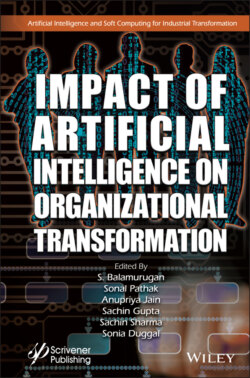Читать книгу Impact of Artificial Intelligence on Organizational Transformation - Группа авторов - Страница 23
1.3.5 Training
ОглавлениеIn this era of disruptions, the concept of one size fits all (same course content) for the learners cannot be applicable. Through AI, the learning material can be personalized in accordance with the learner’s requirements (skill gaps). With the help of AI, suitable content can be recommended to the learners, based on their past behavior. Besides, several content creation algorithms can be used to auto-generate content. AI gives the flexibility to the employees to learn at their own pace. Studies indicate that the robot training instructor can track the daily learning status of the learners and can even compute the average value of the learners’ attention [17]. Based on the learning objectives entered by the employees, the robot training instructor can automatically complete the course. Thus, AI facilitates personalized learning.
Furthermore, a qualitative study conducted by IBM Smarter Workforce Institute on senior HR executives of IBM revealed that their organization is enhancing skills inference technology internally. Consequently, employees of IBM have access to their real-time skill insights through an expertise management interface, which is more accurate. AI skill inference technology also helps IBM to analyze the skills of its employees relative to business needs and can also compare the skill profile of its employees with its competitors. This helps IBM to bridge the skill gaps of its employees [15]. Another example of an AI system as used in the military is intelligent tutoring systems [21, 30].
